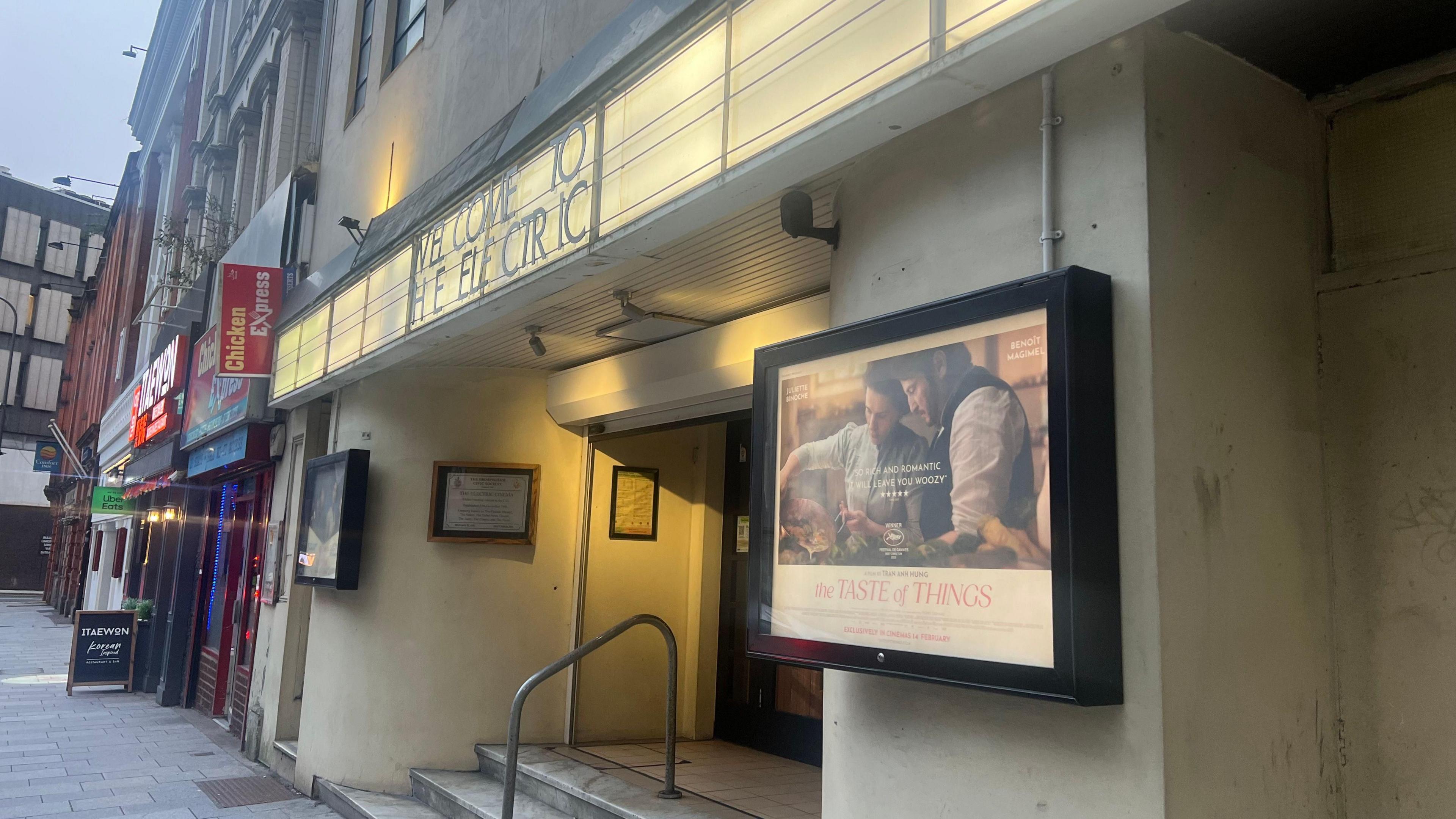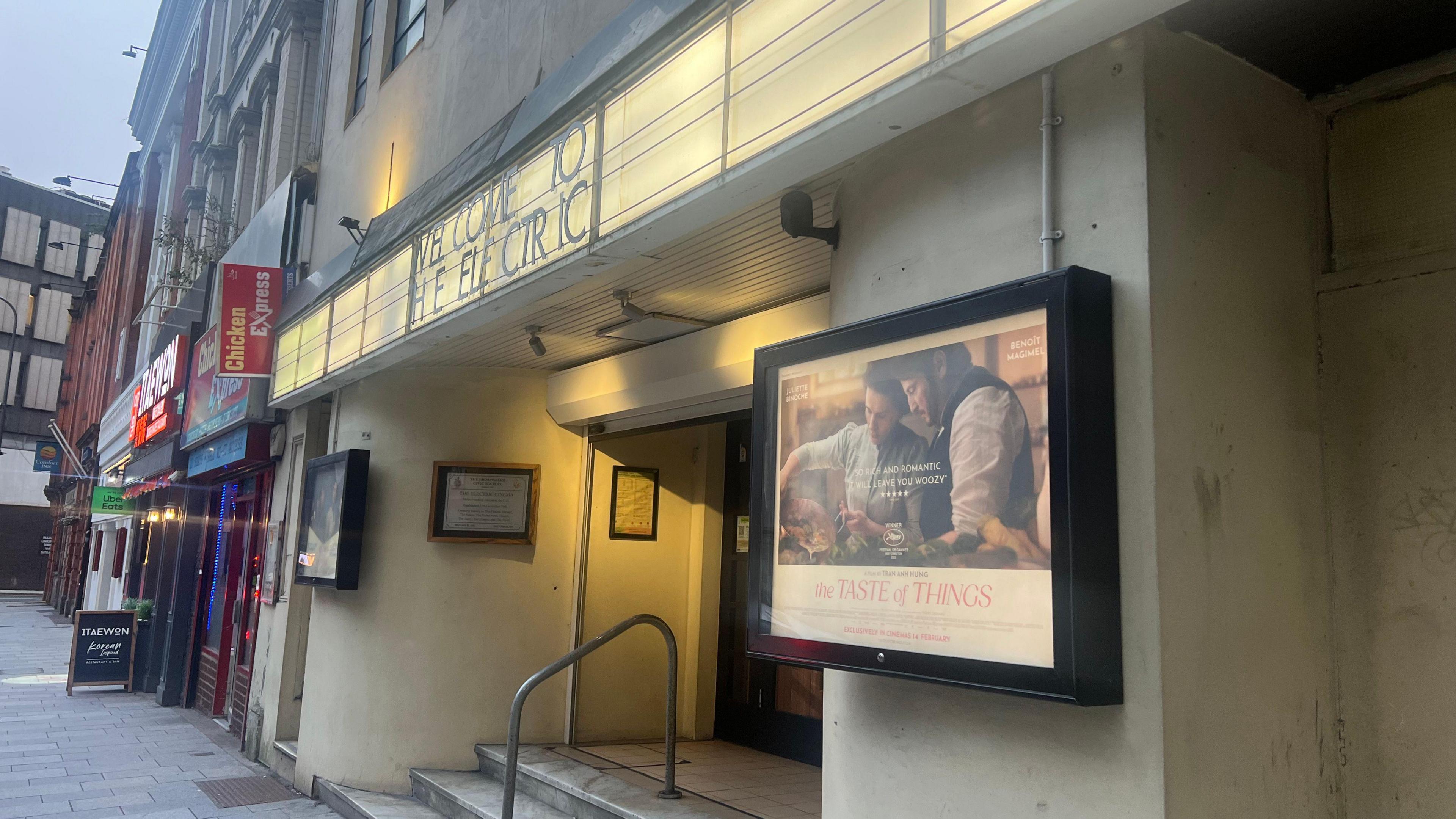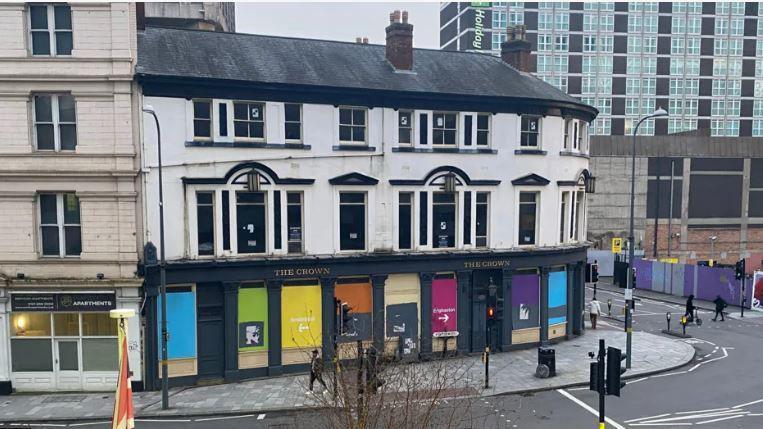Vision for future of UK's oldest cinema unveiled

An early vision of what the cinema could look like as part of a "vibrant cultural quarter" has been shared
- Published
The public has been offered a glimpse of what the future could hold for the UK's oldest working cinema.
The Electric Cinema in Birmingham's historic Station Street closed in February.
It sparked a campaign to save the street which was backed by stars including Black Sabbath frontman Ozzy Osbourne.
Leaseholder Glenbrook told a public session it had ambitions of "reinventing" the cinema, which dates from 1909, and seeing the street transformed into the “heart of a wider cultural walk”.
It shared an early vision of plans it said would need "significant" funding which could be supported through built-to-rent homes in a tower block.
"The Electric has evolved through time to survive – built, rebuilt, and adapted on multiple occasions,” the property developer said.
“We believe it needs to evolve again, to survive and thrive for another century."
The changes could make the venue a "flagship focal point for film in the city" and a "cultural catalyst" for the successful future of the whole street.
The firm is the leaseholder for 43-45, 47 and 51-55 Station Street, which includes the cinema but not The Crown or The Old Rep.
Glenbrook said its aspirations involved working with key partners including Birmingham City Council.
It had not yet met council planning officers to start a pre-application process as the developers wanted to "take as much time as we need to get to the right solution".

The Electric Cinema closed in February
It said The Electric's independence would "remain critical" and it did not intend on working with a cinema chain.
A new facade paying homage to the original Art Deco design could be the best solution due to the building's condition, it said.
However, it stressed plans had not yet progressed "beyond an initial concept" and it wanted to work with local partners on potential options.
"Working together, we can return the street to the vibrant cultural avenue we know it has the potential to be, and once was,” Glenbrook said.
This news was gathered by the Local Democracy Reporting Service which covers councils and other public service organisations.
Follow BBC West Midlands on Facebook, external, X,, external and Instagram, external, Send your story ideas to: newsonline.westmidlands@bbc.co.uk, external
Related topics
- Published29 February 2024

- Published22 April 2024

- Published13 March 2024
